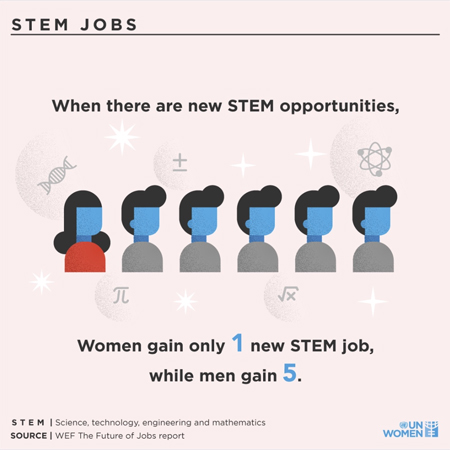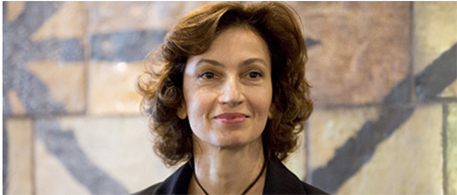Today, we celebrate International Day of Women and Girls in Science. It was created by UNESCO and UN Women, in collaboration with other institutions and partners, to promote women and girls in science.
UNESCO and the UN believe that science and gender equality are both vital for the achievement of the internationally agreed development goals, including the 2030 Agenda for Sustainable Development. Over the past 15 years, the global community has made a lot of effort to inspire and engage women and girls in science. Yet women and girls continue to be excluded from participating fully in science.
According to latest UNESCO data, currently less than 30% of researchers worldwide are women and only around 30% of all female students select STEM-related fields in higher education. Globally, female students’ enrolment is particularly low in ICT (3%), natural science, mathematics and statistics (5%) and in engineering, manufacturing and construction (8%).

EMPOWERING GIRLS & WOMEN
Long-standing biases and gender stereotypes are steering girls and women away from science related fields. As in the real world, the world on screen reflects similar biases. The 2015 Gender Bias Without Borders study by the Geena Davis Institute showed that of the onscreen characters with an identifiable STEM job, only 12% were women. So, in order to achieve gender equality and empower women and girls in science, the United Nations General Assembly declared 11th February as the International Day of Women and Girls in Science.
Commenting on today’s celebration of women and girls in science, Audrey Azoulay, Director General of UNESCO, stated: “If we are to be able to address the enormous challenges of the twenty-first century – from climate change to technological disruption -– we will need to rely on science and the mobilisation of all our resources. It is for this reason that the world must not be deprived of the potential, the intelligence, or the creativity of the thousands of women who are victims of deep-seated inequality and prejudice.
“On the International Day of Women and Girls in Science 2020, UNESCO is calling on the international community, States and individuals to work together so that equality in the sciences and other fields can finally become a reality. Humanity has everything to gain – and so does science.”

INTERNATIONAL COLLABORATION
The 5th International Day of Women and Girls in Science Assembly, taking place today and tomorrow at the UN’s headquarters will address some of those challenges. The event will bring together stakeholders, including high-level government officials, representatives of international organisations, foundations, the private sector, as well as female science experts and girls in science advocates from around the world. This year, discussions will focus on the links between gender inequality, specifically in science-digital and tech revolution, and the agricultural sector for Sustainable Development.
The Assembly aims to strengthen the engagement of women and girls in agriculture and technology fields, while incorporating cultural insights, and investing in women and girls as a fundamental means for succeeding in the era of the fourth industrial revolution.
The priority objectives for this year’s Assembly include:
1. Addressing the connection between digital economy agri-tech and gender inequality.
2. Ensuring participation of women and girls in science with a cultural, regional focus.
3. Tackle regional/local labour markets interdependence and constraints for women in science.
4. Addressing the connection of women in science and the fourth digital revolution.
For more information on the Assembly, click here.






































